Filter by
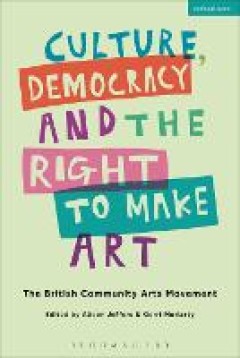
Culture, democracy and the right to make art : the British community arts mov…
Based on the words and experiences of the people involved, this book tells the story of the community arts movement in the UK, and, through a series of essays, assesses its influence on present day participatory arts practices. Part I offers the first comprehensive account of the movement, its history, rationale and modes of working in England, Northern Ireland, Scotland and Wales; Part II brin…
- Edition
- -
- ISBN/ISSN
- 9781474258388
- Collation
- xiv; ill; 280 p.
- Series Title
- -
- Call Number
- 700.10309410904 JEF c
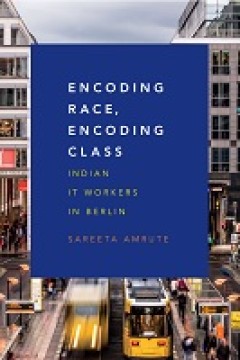
Encoding race, encoding class : Indian IT workers in Berlin
In Encoding Race, Encoding Class Sareeta Amrute explores the work and private lives of highly skilled Indian IT coders in Berlin to reveal the oft-obscured realities of the embodied, raced, and classed nature of cognitive labor. In addition to conducting fieldwork and interviews in IT offices as well as analyzing political cartoons, advertisements, and reports on white-collar work, Amrute spent…
- Edition
- -
- ISBN/ISSN
- 9780822361176
- Collation
- ix, 280p.; ill.
- Series Title
- -
- Call Number
- 331.6254043155 ENC a
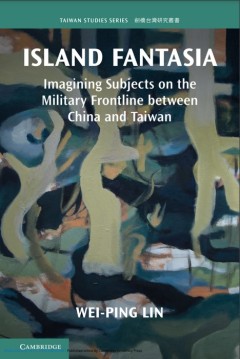
Island fantasia : imagining subjects on the military frontline between China …
The Matsu archipelago between China and Taiwan, for long an isolated outpost off southeast China, was suddenly transformed into a military frontline in 1949 by the Cold War and the Communist-Nationalist conflict. The army occupied the islands, commencing more than 40 long years of military rule. With the lifting of martial law in 1992, the people were confronted with the question of how to move…
- Edition
- 4
- ISBN/ISSN
- 9781009023481
- Collation
- xviii; 310p; ill.
- Series Title
- -
- Call Number
- 951.249 ISL W

The Custodians of The Gift
Emerging from more than two decades of research in the field and in the archives, the essays collected here explore the multifaceted topic of the Fijian firewalking ceremony, the vilavilairevo. The collection examines the intersection of the intertwined topics of cultural property, reproduction of tradition, and change with issues of (post)colonial representation, authenticity, and ethnic ident…
- Edition
- -
- ISBN/ISSN
- 9788855180870
- Collation
- -
- Series Title
- -
- Call Number
- -

Television Scales
How to reckon with the staggering volume of television materials, past and present? And how to comprehend all the potential, complex scales at which to grapple with television, from its tiniest units of audiovisual content to its most massive industrial coordinates and beyond? In Television Scales, Nick Salvato demonstrates how the problem of scale in the field of television may be turned into …
- Edition
- -
- ISBN/ISSN
- 9781950192427
- Collation
- ScholarLed
- Series Title
- -
- Call Number
- -
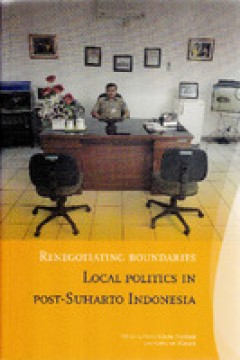
Renegotiating Boundaries; local politics in post-Suharto Indonesia
For decades almost the only social scientists who visited Indonesia’s provinces were anthropologists. Anybody interested in politics or economics spent most of their time in Jakarta, where the action was. Our view of the world’s fourth largest country threatened to become simplistic, lacking that essential graininess. Then, in 1998, Indonesia was plunged into a crisis that could not be unde…
- Edition
- -
- ISBN/ISSN
- 9789004260436
- Collation
- -
- Series Title
- -
- Call Number
- -
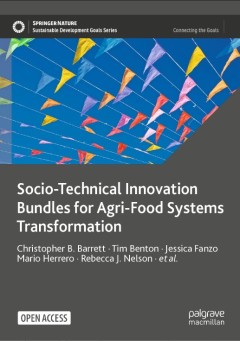
Socio-Technical Innovation Bundles for Agri-Food Systems Transformation
This open access book is the result of an expert panel convened by the Cornell Atkinson Center for Sustainability and Nature Sustainability. The panel tackled the seventeen UN Sustainable Development Goals (SDGs) for 2030 head-on, with respect to the global systems that produce and distribute food. The panel’s rigorous synthesis and analysis of existing research leads compellingly to multiple…
- Edition
- 10
- ISBN/ISSN
- 9783030888022
- Collation
- xxxix; 195p; ill.
- Series Title
- -
- Call Number
- 338.1 SOC C
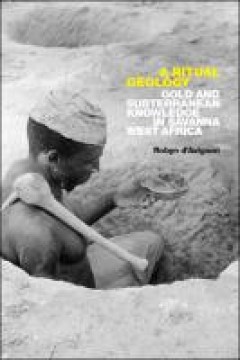
A ritual geology : gold and subterranean knowledge in Savannah West Africa
Robyn d’Avignon tells the history of West Africa’s centuries-old indigenous gold mining industries and its shared practices, prohibitions, and cosmological engagements.
- Edition
- 4
- ISBN/ISSN
- 9781478092674
- Collation
- xvii, 329p.; ill.
- Series Title
- -
- Call Number
- 338.2741096 RIT d
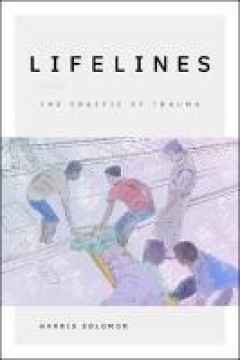
Lifelines : the traffic of trauma
Harris Solomon takes readers into the trauma ward of one of Mumbai’s busiest public hospitals, narrating the stories of the patients, providers, families, and frontline workers who experience and treat traumatic injury from traffic .
- Edition
- 2
- ISBN/ISSN
- 9781478092728
- Collation
- xi, 305p.; ill.
- Series Title
- -
- Call Number
- 363.125650954792 LIF s

The small matter of suing Chevron
Suzana Sawyer traces Ecuador’s lawsuit against the Chevron corporation for the environmental devastation resulting from its oil drilling practices, showing how distinct legal truths were relationally composed of, with, and through crude oil.
- Edition
- 4
- ISBN/ISSN
- 9781478092612
- Collation
- xiii, 417p.; ill.
- Series Title
- -
- Call Number
- 305.563309 SMA s
 Computer Science, Information & General Works
Computer Science, Information & General Works  Philosophy & Psychology
Philosophy & Psychology  Religion
Religion  Social Sciences
Social Sciences  Language
Language  Pure Science
Pure Science  Applied Sciences
Applied Sciences  Art & Recreation
Art & Recreation  Literature
Literature  History & Geography
History & Geography